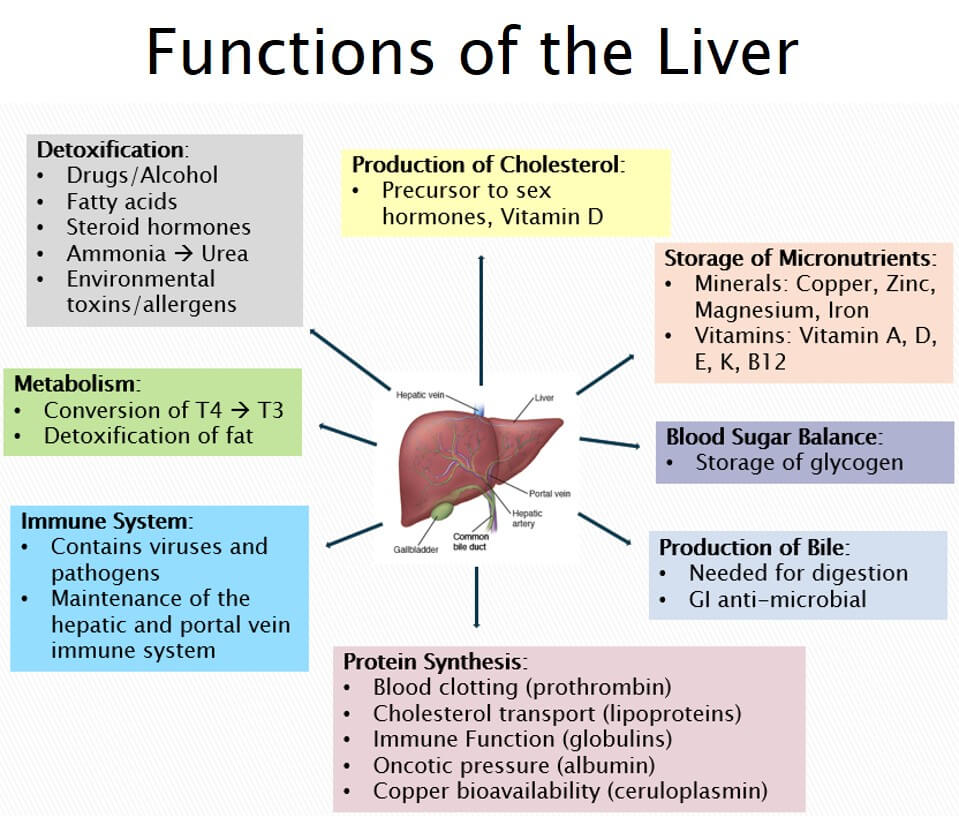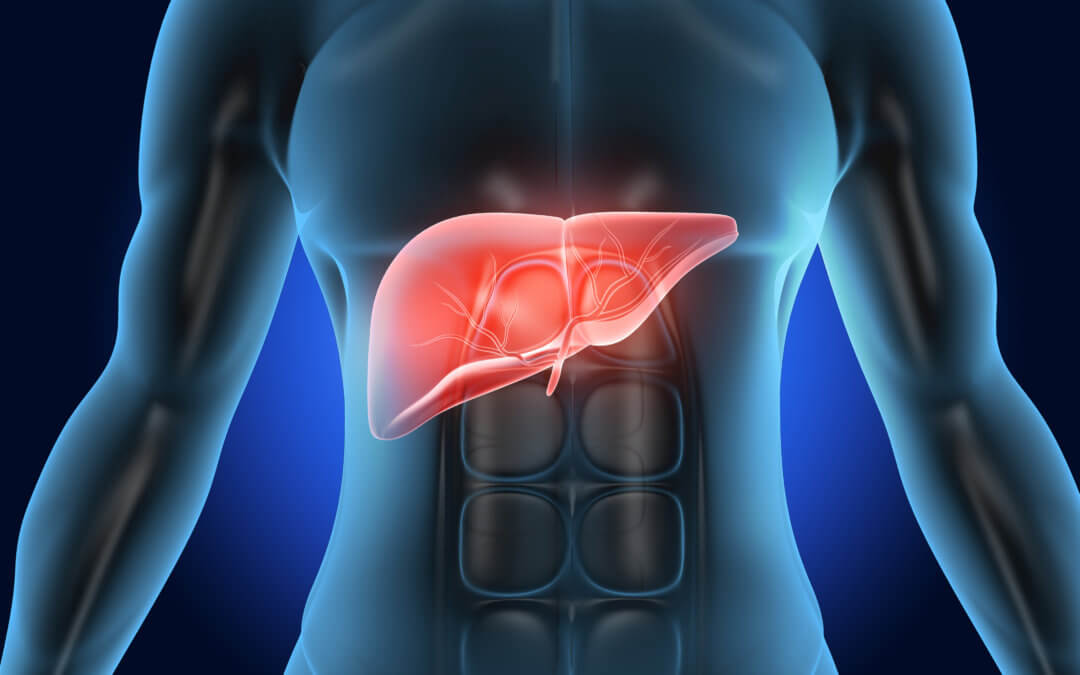The centrality of the function of the liver cannot be overstated, it is truly the “workhorse” of the body.

The many functions of the liver include:
- Detoxification. We accumulate certain toxins in our body from a variety of sources. Some toxins come from the outside world, they might include alcohol, drugs, pesticides in food, household cleaning products, and air/water pollution. Additionally, we need to detoxify a variety of chemicals naturally found within our body. For example, stress hormones such as cortisol, adrenaline, histamine, and estrogen need to be detoxified to clear them from the system. Failure to detoxify cortisol may result in anxiety, failure to detoxify histamine may result in allergies, and failure to detoxify estrogen may result in hormone imbalance. Fat is optimally eliminated from our body, not by “burning” it in the metabolic machinery, but mostly by detoxification via the liver.
- Production of Cholesterol. Hepatocyte production of cholesterol is important for overall function as cholesterol is involved in cell membrane integrity, nervous system conduction, brain/cognitive function, precursor to bile production, precursor to Vitamin D, and precursor to sex hormones.
- Storage of Micronutrients. The liver is a storage compartment for various micronutrients, such as copper, zinc, magnesium, iron, fat-soluble vitamins, and Vitamin B12.
- Blood Sugar Balance. The liver is also the storage location for glycogen, the body’s medium-term storage of glucose (sugar). A dysfunction liver will often result in chronic hypoglycemia (low blood sugar) particularly in between meals and at nighttime.
- Production of Bile. Liver health affects intestinal health via production of bile, which helps us to digest fat and acts as a natural anti-microbial and disinfectant on the gut.
- Protein Synthesis. The liver is responsible for the production of proteins involved in a variety of biochemical processes.
- Immune System. The liver has it’s own immunologic system that guards the entrance to the liver (portal vein) as well with the liver itself. Acting as the body’s filter, the portal vein immune system will often “catch” pathogens as blood filters through, and if necessarily, the liver will actually sequester viruses and bacteria within the liver itself to protect the rest of the body.
- Metabolism. The liver is the main location by which thyroid hormone is activated (conversion of T4 into T3). Thus liver congestion may actually show up in the bloodwork as “functional hypothyroidism” and result in fatigue and weight gain. Additionally, if fat is not detoxified by liver effectively, the free fat in circulation will have a direct anti-metabolic effect via the Randall Cycle.
Why the Liver Becomes Congested?
- Excess environmental toxins
- Industrial solvents/lubricants (PCBs)
- Plastics (BPA)
- Plasticizers (Phthalates)
- Preservatives
- Pesticides
- Phytoestrogens
- Volatile Organic Compounds
- Heavy Metals (aluminum, arsenic, cadmium, lead, mercury)
- Alcohol and drugs
- Overuse of medications, such as antibiotics
- Air and water pollution
- Excess endogenous toxicity from GI dysbiosis
- Excess fat in the system (i.e. lipid peroxidation)
- Iron overload (rust)
- Oxidative Stress
Babies are Often Born with Congested Livers
Most people think that babies are born into this world “pure”, but in the modern age, this is rarely the case. A recent study by the Environmental Working Group (EWG) showed umbilical cord of a sampling of babies contained over 200 toxic chemicals, many of which are known to cause cancer. We often see babies with congested livers, particularly those who from an early age have issues with jaundice, early GI issues (reflux, feeding difficulty), food sensitivities, and rashes/eczema.
Signs and Symptoms of Liver Dysfunction/Congestion
- Chemical sensitivity
- Easily intoxicated by alcohol
- Eczema
- Acne
- Easy bruising
- Swelling
- Dark circles under the eyes
- Seasonal allergies/sinus issues
- Asthma
- Hemorrhoids
- Blood sugar imbalance
- Brain fog
- Digestive issues
- Fatigue
- Dark urine
- Symptoms of hormone imbalance
Conclusion
We live in a toxic world. The liver is the filtration system that keeps our system clean and allows it to function properly. Additionally, the liver has a tremendous amount of other functions and interactions with other systems. A congested liver will therefore create a wide spectrum of different functional imbalances and issues. A Functional Medicine doctor will be able to work with you to identify subtle indicators that the liver is dysfunctional and help you to restore balance to the system.

